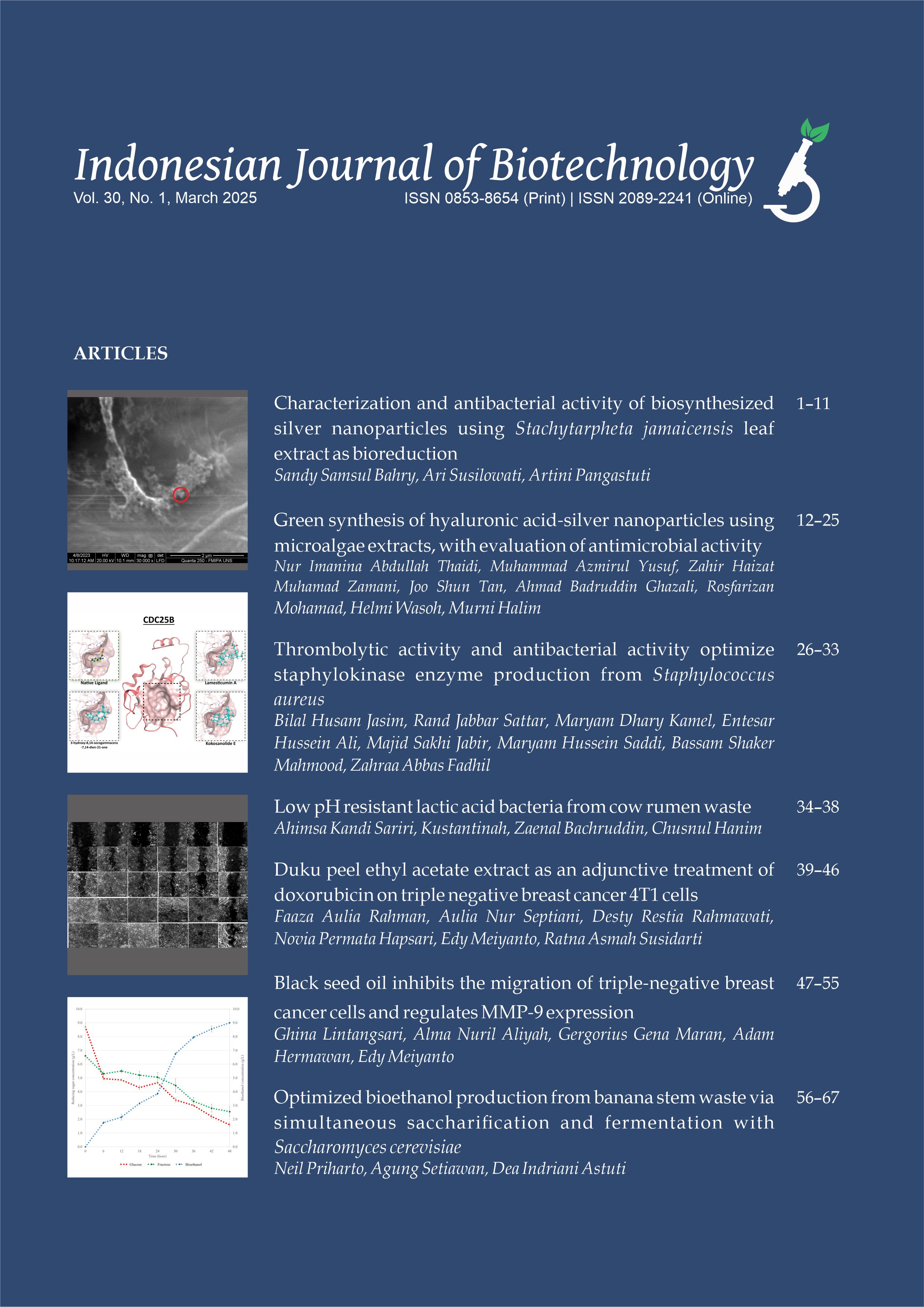Antigen Presentation Ability of Salmonella Carrying DNA Vaccine Model and MCP-3 gene
Endang Winiati Bachtiar(1*), Peter Smooker(2), Peter J Coloe(3)
(1)
(2)
(3)
(*) Corresponding Author
Abstract
The objective of this study is to determine the antigen presentation ability of a DNA vaccine model that is co-delivered with that of recombinant Salmonella enterica serovar Typhimurium (STM1) expressing chemokine macrophage chemotactic protein-3 (MCP-3). The DNA vaccine, pVROVA, was constructed by amplification of the ovalbumin coding region from sOVA-C1. Dendritic cells (DCs) were obtained from IL-4 and GMCSF stimulated mouse bone marrow stem cell. Cultured DCs were incubated with STM1 carrying a model ovalbumin gene (pVROVA). Furthermore, MHC class I antigen presentation of a dominant OVA peptide was assayed in vitro. The experiments were designed to determine the effect of co-delivering MCP-3 with that of ovalbumin in STM1. Our results show that a plasmid pROVA-carrying ovalbumin gene was succesfully constructed and sequence analysis of the ovalbumin-coding revealed an identity match of 100% with that of the chicken ovalbumin DNA sequences from the GenBank database. We also found that the presence of the MCP-3 encoding plasmid in STM1 or E. coli DH1 could increase the recovery of both STM1 and E. coli DH1 over those that carry the empty plasmids. Antigen presentation assay also indicates that MCP-3 can positively influence the presentation of ovalbumin. Conclusion: the infection of DCs by STM1-carrying DNA vaccine and MCP-3 results in an increase of processing and presentation of ovalbumin in vitro.
Keywords : DNA vaccine, MCP-3, APC, Salmonella, Dendritic cells
Keywords : DNA vaccine, MCP-3, APC, Salmonella, Dendritic cells
Full Text:
PDFArticle Metrics
Refbacks
- There are currently no refbacks.
Copyright (c) 2015 Indonesian Journal of Biotechnology









